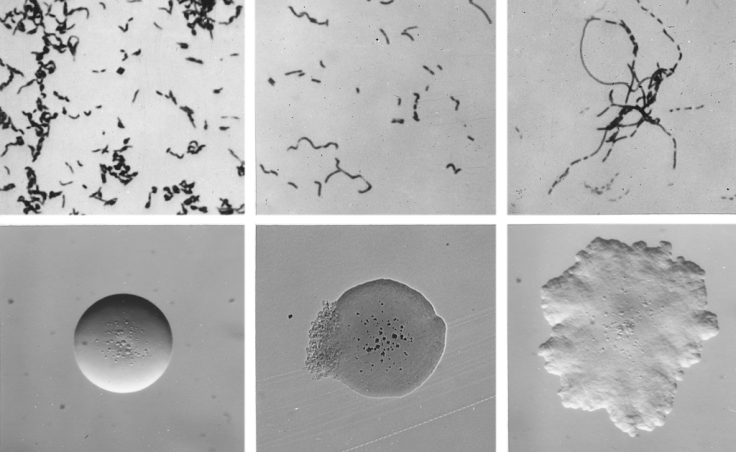Researchers Find 'Deadly' Bacteria In Stranded Porpoises
KEY POINTS
- A "remarkably high" number of dead porpoises washed ashore last year
- Researchers tried to find the possible cause of death
- They found the bacterium Erysipelothrix rhusiopathiae in the porpoises' organs
Over three quarters of porpoises that were stranded on a Dutch coast last year have been found to be harboring deadly bacteria. In cetaceans like porpoises, this particular bacterium can cause blood poisoning.
The Dutch coast typically sees an average of 600 stranded porpoises each year, Utrecht University noted in a news release. But last year, the Dutch Wadden Sea Islands saw 190 dead porpoises washing ashore over the course of just 10 days, a number the university described as "remarkably high."
Experts from Utrecht University and Wageningen University & Research investigated the cause of the porpoises' deaths. They examined various factors, from the creatures' physical condition and blood samples to the contents of their stomachs and the possible presence of parasites and algae toxins.
The researchers found that all the porpoises were actually relatively healthy before their deaths. In fact, many of the females had even gotten pregnant recently. This suggests that the porpoises experienced a "sudden death," Utrecht University biologist Lonneke IJsseldijk noted in the news release.
Furthermore, the similar levels of decomposition of the carcasses imply that they had actually died "around the same time." The fact that their stomachs only contained a small amount of food hints that they were starving even before stranding.
"This is consistent with a severe and acute illness," Mardik Lepold, of Wageningen University & Research, said.
Deadly bacteria
The researchers found Erysipelothrix rhusiopathiae in many of the porpoises that they examined. This bacterium is found worldwide and has been reported as "a commensal or a pathogen in a wide variety of vertebrate and invertebrate species," which include animals like ducks, sheep, turkeys and fish, as well as rodents, chickens and cats.
It has also been reported in humans, with most of the human cases being related to occupational exposures and found among butchers, veterinarians and fishermen.
In the case of the porpoises, the researchers found the bacteria in several organs, suggesting that the creatures experienced blood poisoning. It remains unclear how exactly they got infected and what is the exact cause of their deaths.
"In the available literature there are no descriptions of mass mortality as a result of Erysipelothrix infection, only a few isolated individual cases," IJsseldijk said in the news release. "We also do not know if this bacterium normally occurs in porpoises. But the fact that until now, we have never found this bacterium in porpoises during an autopsy is certainly remarkable."
The researchers have ruled out other possible causes of death but they are also looking at other factors. For instance, they also found saxitoxine (STX) in the dead porpoises. This is an algae-produced biotoxin that can impede the operation of the nervous system. The team is also looking at other possible viruses that may be in the porpoises.
Porpoises
Porpoises are toothed whales that look quite like dolphins but are smaller. They have differently shaped heads and teeth that are shaped like spades instead of conical. They are generally shy and are less sociable compared to dolphins.
Among the major threats that the creatures face include entanglement in fishing nets and deliberate hunting. The most endangered porpoise in the world is the vaquita, which is believed to have only about 10 individuals left in the species.

© Copyright IBTimes 2024. All rights reserved.






















